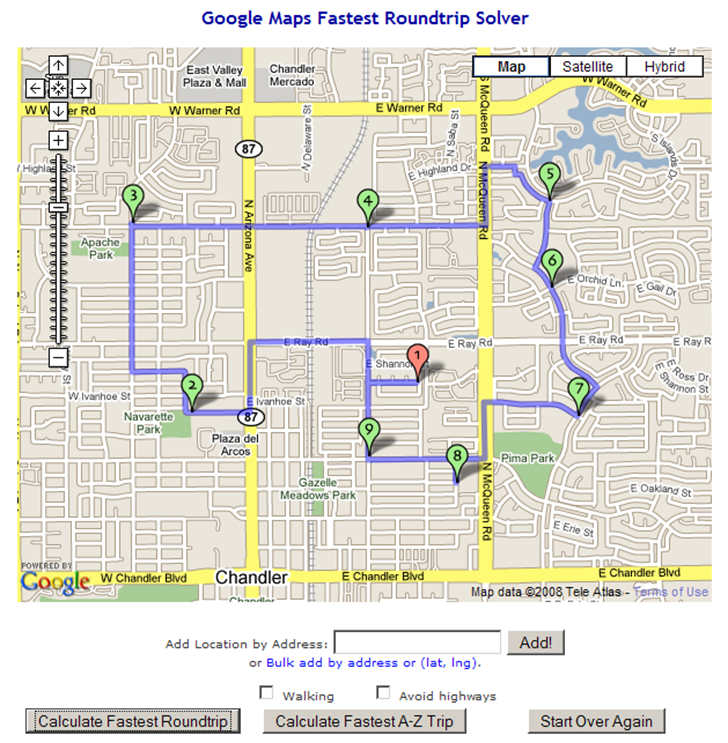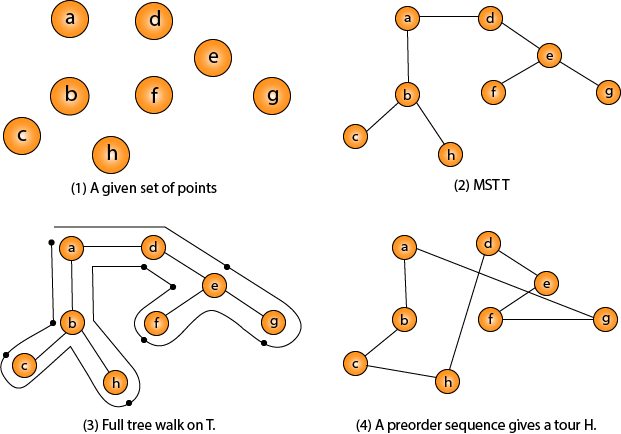Are you a travel enthusiast or a business traveler looking to make the most of your trips? In this guide, we’ll dive deep into the Traveling Salesman Problem (TSP), a mathematical concept that can significantly enhance your travel planning. I’ll share personal experiences, practical tips, and even some destination highlights to make your journey smoother and more enjoyable!
What is the Traveling Salesman Problem?
The Traveling Salesman Problem is a classic optimization problem in computer science and operations research. The challenge is simple in concept: given a list of cities and the distances between them, what is the shortest possible route that visits each city exactly once and returns to the origin city? This problem is crucial for efficient route planning, and a TSP calculator can help simplify the process.
Why Should You Care About TSP?
Understanding TSP can lead to better travel itineraries, saving time and money. Whether you’re a salesperson, a logistics manager, or an adventurous traveler, optimizing your route can enhance your experience. I remember the time I planned a trip across Europe, zigzagging through cities when a well-planned route could have saved me hours!
How Does a TSP Calculator Work?
A TSP calculator utilizes algorithms to determine the most efficient route. Most calculators take a list of locations, calculate the distances, and provide the optimal path. Many modern calculators are available online, and some even have mobile applications to assist you on the go.
Types of TSP Calculators
- Online Calculators: Great for quick calculations without any downloads.
- Mobile Apps: Useful for travelers who need route optimization on their devices.
- Advanced Software: Ideal for businesses needing comprehensive solutions with additional features.
Using a TSP Calculator: Step-by-Step Guide
1. Select Your Cities
Start by entering the cities you want to visit. Make sure to include your starting and ending city to obtain a complete route.

2. Input Distance Data
Depending on the calculator, you may need to input the distances between cities manually or allow it to use a mapping API for automatic calculations.
3. Run the Calculation
Hit the calculate button! The calculator will process your input and provide a route.

4. Review the Results
Examine the suggested path and estimated travel times. Most calculators will show a visual route on a map, which is incredibly helpful for understanding your journey.
5. Make Adjustments
Feel free to tweak your route based on personal preferences, like scenic stops or rest periods. Flexibility is key in travel, as I learned during my last road trip through the scenic Pacific Coast Highway.

Comparison of Top TSP Calculators
| Calculator Name | User Rating | Key Features | Price |
|---|---|---|---|
| RouteXL | 4.5/5 | Multi-stop routes, export to GPS | Free basic plan, Paid from $18/month |
| MapQuest | 4.0/5 | Live traffic updates, scenic routes | Free |
| MyRouteOnline | 4.2/5 | Customizable routes, easy sharing | $18/month |
| Google Maps | 4.8/5 | Comprehensive mapping, real-time traffic | Free |
| Roadtrippers | 4.3/5 | Attraction suggestions, collaborative planning | Free basic plan, Paid from $29.99/year |
Travel Tips for Optimal Route Planning
1. Research Your Destinations
Understanding your destinations—like local attractions, dining options, and even rest stop availability—can greatly enhance your travel experience. I once drove through the Canadian Rockies, taking my time at scenic views and unexpected towns, making the journey as memorable as the final destination.

2. Prioritize Your Must-See Attractions
Make a list of places you absolutely want to visit, and use your TSP calculator to include these stops while optimizing your route. On a recent trip to Italy, I prioritized historical sites, which made my itinerary both efficient and enriching!
3. Be Flexible with Your Schedule
Sometimes, the best adventures come from spontaneous decisions. While a TSP calculator helps create a solid plan, allow room for unexpected detours. Whether it’s an intriguing roadside diner or a charming village, embrace the journey!

Destination Highlights and Personal Experiences
Europe: A Journey Through History
During my travels through cities like Paris, Rome, and Barcelona, I utilized TSP strategies to maximize my time at landmarks like the Eiffel Tower and the Colosseum. Balancing must-see destinations with exploratory walking routes made my trip unforgettable.

The USA: Scenic Road Trips
Driving through America, from New York to California, was thrilling! Using a TSP calculator allowed me to visit iconic spots like the Grand Canyon and Chicago’s Millennium Park without missing a beat.
Pros and Cons of Using a TSP Calculator
Pros
- Time-Saving: Quickly finds the most efficient route.
- Less Stress: Minimizes coordination headaches when planning a trip.
- Flexibility: Most calculators allow for adjustments based on user preferences.

Cons
- Dependent on Data: Accuracy relies on up-to-date distance and traffic information.
- Over-Optimization: Can lead to rigid plans that don’t account for spontaneity.
Frequently Asked Questions
What is the Traveling Salesman Problem in simple terms?
The Traveling Salesman Problem is essentially about finding the shortest possible route that visits a set of locations and returns to the starting point. It helps in route optimization for travel and delivery.
Can I use a TSP calculator for road trips?
Absolutely! TSP calculators are perfect for optimizing road trips and ensuring you see all the desired sights while minimizing travel time.
Are there any free TSP calculators available?
Yes, many online calculators offer free versions, such as Google Maps and RouteXL, which can help you plan your travels without any cost.
How accurate are TSP calculators?
Most TSP calculators provide highly accurate routes based on current distance and traffic data. However, it’s always good practice to double-check routes especially in areas with heavy traffic or road constructions.